Staying hydrated is always essential, but it’s that much more important during the summer. When temperatures rise, your body tries to compensate and cool itself by sweating, and you then need to compensate for the loss of fluids. Drinking plenty of water or electrolyte-packed drinks is a great first line of defense, but you can also opt to eat hydrating foods.
Water consumed through food is absorbed slower than it is from liquids, “leading to more sustained hydration,” says Avery Zenker, RD, nutritionist and writer for Everflex Fitness.
“This slow release helps prevent the sudden influx of water into the bloodstream, which can sometimes lead to overhydration or dilution of essential electrolytes,” Zenker explains. “Foods high in water content often also provide essential electrolytes (such as potassium, sodium, and magnesium) and vitamins (like vitamin C and A) that are important for maintaining fluid balance.”
Wondering which foods fall under this designation? Read on for the 10 most hydrating choices to add to your grocery list.
RELATED: 10 Best Summer Foods for Weight Loss, According to Dietitians.
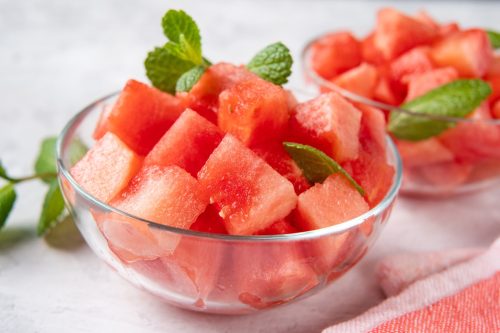
Watermelon contains about 92 percent water content and is a “festive and fun way to hydrate while enjoying something sweet,” says Nichole Dandrea-Russert, MS, RDN, author of The Fiber Effect and nutritionist at Purely Planted.
According to Zenker, a one-cup serving of watermelon (roughly 152 grams) provides about 140 milliliters of water, or just over a half-cup.
“It’s also an excellent source of lycopene, a carotenoid that acts like an antioxidant, and potassium, an important mineral and electrolyte,” she adds.
Michelle Routhenstein, MS, RD, CDE, CDN, preventive cardiology dietitian at Entirely Nourished, also notes that lycopene can help protect skin from sun damage when you eat it regularly (and apply sunscreen).
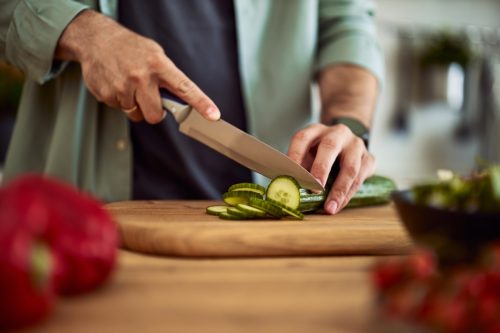
Next up are cucumbers, which “aren’t only for over-your-eyes at the spa,” says Rhyan Geiger, RDN, plant-based dietitian at Phoenix Vegan Dietitian.
“They are also a refreshing and hydrating option for the summer—and they’re over 90 percent water!” she shares.
Dandrea-Russert points out that, at 96 percent, cucumbers actually have the highest water content of any food. They’re also packed with potassium, vitamin K, and fiber.
“Make a cucumber tomato gazpacho for a cooling, refreshing, and nourishing summer treat,” she suggests.
RELATED: 10 Best Supplements to Take in the Summer, Doctors Say.
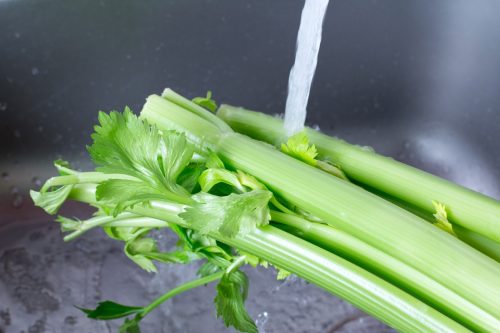
A great snack for the beach or a barbecue, celery is another of the most hydrating foods.
“Celery is composed of about 95 percent water, containing fiber, vitamins (like vitamin K and folate), and minerals (such as potassium and manganese) to support hydration and heart health,” Routhenstein says.
According to Dandrea-Russert, celery is also a good source of sodium, which is “another essential mineral and electrolyte that is key for fluid balance, pH, and assisting with nerve and muscle function.”
One celery stalk contains approximately 32 milligrams of sodium, she notes.
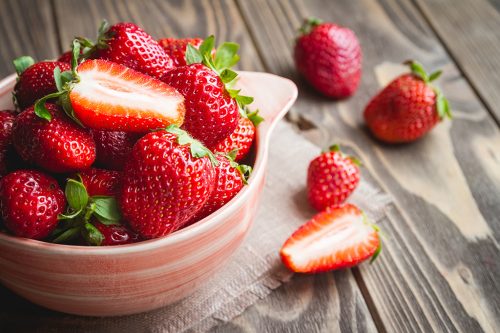
Strawberries aren’t just tasty—they’re also one of the top hydrating fruits you should have on hand this summer, as they’re about 92 percent water.
As a bonus, Dandrea-Russert points out that these sweet berries are “low in calories, but high in fiber and vitamin C, which is important for the immune system and keeping anxiety at bay.”
RELATED: This Simple Trick Will Keep You More Hydrated Throughout the Day.
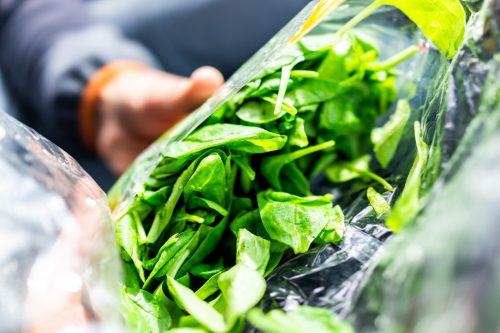
Spinach is the perfect base for a summer salad, and it’s also beneficial for hydration.
It’s about 93 percent water, full of potassium to help with electrolyte balance, and contains carotenoids that fight inflammation, Dandrea-Russert shares.
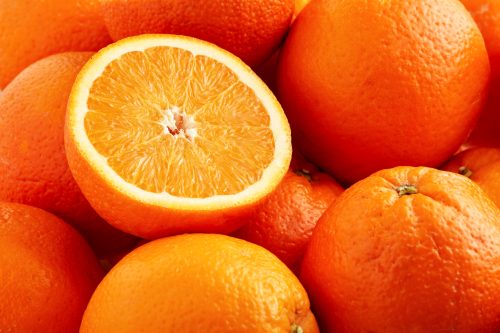
What’s more refreshing than an orange on a hot summer day? In addition to being delicious, eating an orange can also keep you hydrated. According to Zenker, oranges are roughly 86 percent water, not to mention a great source of potassium and magnesium.
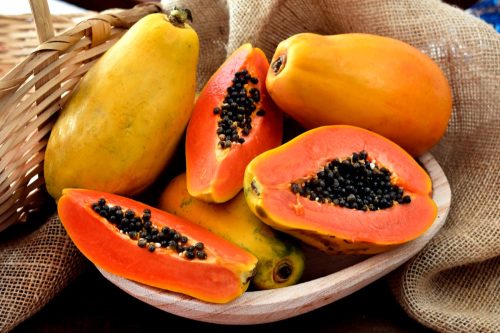
Also on Zenker’s list of the most hydrating foods is papaya, which is 89 percent water. As a bonus, it’s high in potassium and a good source of vitamin C.
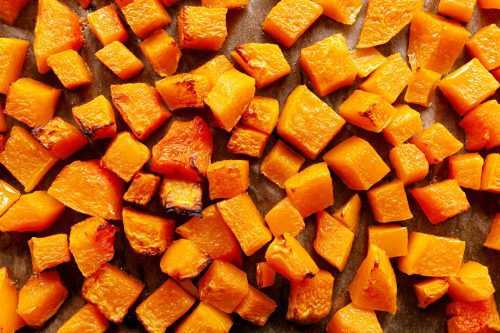
While we often think of squash as a fall food, you might want to consider picking some up next time you’re at the supermarket.
“[It’s] often abundantly growing in gardens this time of year and is 94 percent water,” Dandrea-Russert says. “Squash is packed with vitamin B6, carotenoids, vitamin C, and dietary fiber.”
RELATED: I Tried Liquid I.V. Hydration for Two Weeks & Noticed 4 Changes to My Body.
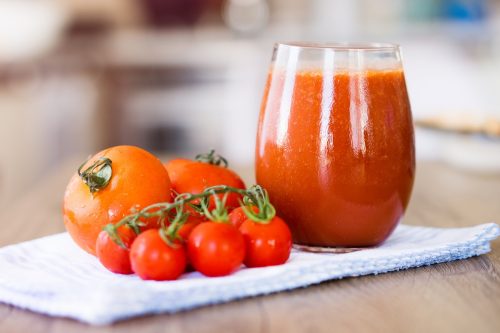
Whether you think of them as fruits or vegetables, tomatoes are 95 percent water, which makes them a great choice for a summertime food that keeps you hydrated.
They’re also rich in lycopene, vitamin C, and potassium, Dandrea-Russert and Zenker explain.
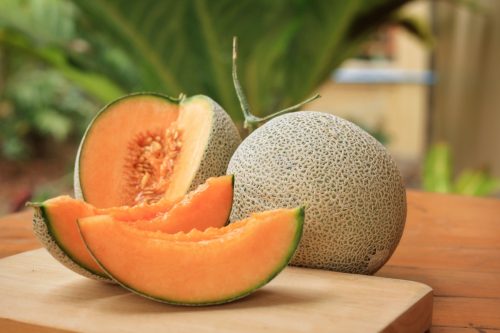
Watermelon isn’t the only melon that will keep you hydrated. Consider giving cantaloupe a try. According to Zenker, cantaloupe is 90 percent water and high in potassium.
